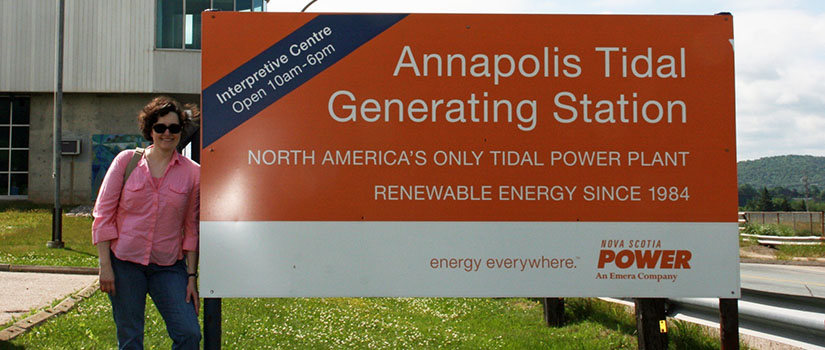Elizabeth Endler, chemical engineering ’98, shines in the dynamic world of energy storage and integration. With over a decade of experience in the ever-evolving field, she has proven herself to be a driving force behind innovation, while consistently overcoming challenges and leading groundbreaking advancements that reshape the energy industry.
Endler is currently chief scientist for energy storage and integration at Shell. But long before she was appointed to her current title in December 2022, Endler dedicated substantial time to research as a chemical engineering student. This ignited her interest in pursuing advanced studies.
“The chemical engineering department was really influential for me because I worked with multiple professors, whether in class, as an advisor, or in research. There were also opportunities for me to work outside the department. All of that led me to decide to attend graduate school,” Endler says.
After earning her Ph.D. in chemical engineering from the University of Wisconsin, Endler's career journey began in 2003 at 3M, where she gained practical exposure and contributed to product development in a business laboratory. Her responsibilities encompassed not only technology but also manufacturing intricacies and logistics. Collaborating with marketing colleagues, she delved into consumer motivations and strategies to cultivate product interest.
“It was a very holistic view that really informs how I think about things today because it was a very strong requirement to have a good view of what customers want. That’s critical to any business,” Endler says.
Her transition to Shell and entry into renewable electricity in 2011 marked pivotal junctures in her career, as she began developing and applying her expertise in pioneering energy storage systems and devices. Her comprehensive knowledge base of batteries, thermal, mechanical, and chemical/molecular energy storage covers the entire spectrum of energy solutions.
“I was first introduced to formal concepts of sustainability when working on consumer products [from 2003 to 2011], and I was drawn to this work because of my desire to make products that make lives better, easier and cleaner,” Endler says. “Since energy has such a broad impact on daily life, it was exciting to incorporate these concepts into my energy system work and know that it can help make a difference.”
Endler's impact goes beyond specific technologies. She focuses on integrating energy networks, including the interaction between electricity and natural gas. She also concentrates on enhancing distributed electricity resources—like solar, batteries, electric vehicles and electrified manufacturing processes—which contribute to a more sustainable approach to energy management.
Endler’s unique background combines academic insights and industry acumen, providing an unmatched perspective. Understanding technology, manufacturing, marketing, and customer preferences allows her to make informed decisions. And her career journey underscores chemical engineering's pivotal role across all sectors. Endler’s contributions resonate across the industry, offering an interconnected and sustainable future.
“You can also see over the course of my career is that it's gone in a lot of different directions, but I've always been able to use chemical engineering as my foundation and as my home technology,” Endler says.
As the energy landscape evolves, Endler remains a trailblazer by shaping a greener, interconnected tomorrow.
